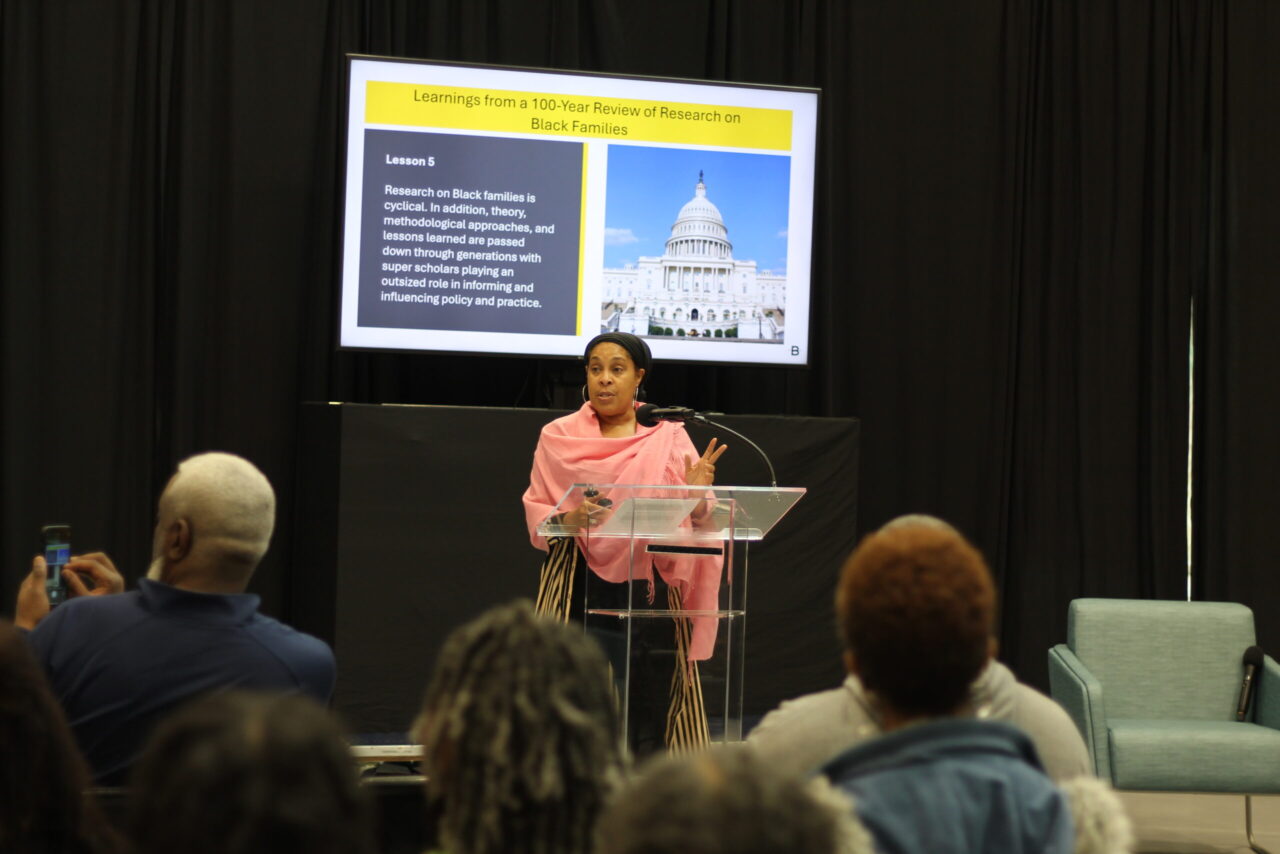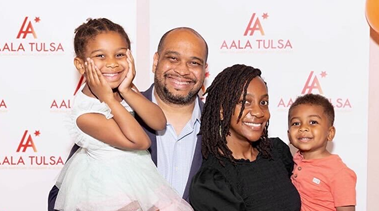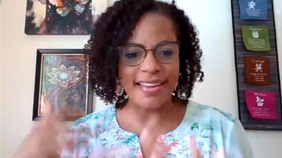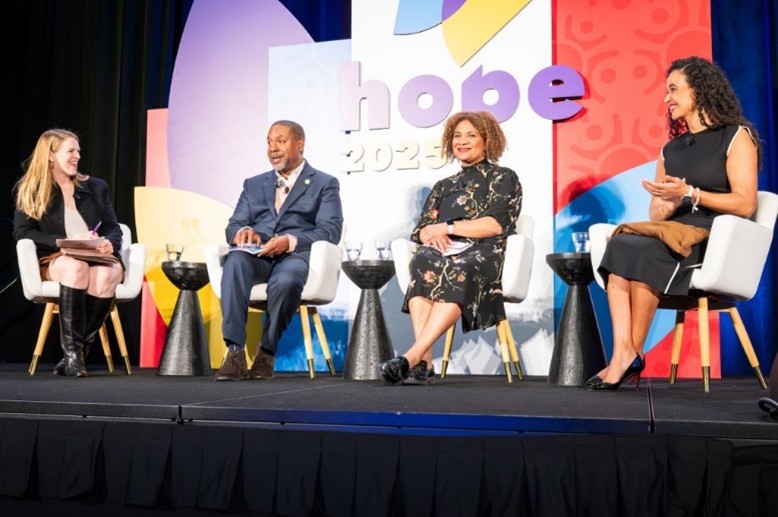On March 15, 2025, Black Families Flourishing (BFF) Director and Lead Researcher Dr. Chrishana M. Lloyd and BFF Deputy Research Co-Leads Dr. Shana E. Rochester and Dr. Quiana Lewis Wallace attended the Anacostia River Church (ARC)’s “Seeking Shalom and Forming Families” mini conference. Held in the new Joy Evans Therapeutic Recreation and Aquatic Center in Southeast DC, the daylong event showcased three guest speakers leading work to support the well-being of Black families across the country and in Washington, DC.
Chrishana kicked off the conference with an overview of the 100-Year Review of Research on Black Families. She summarized the review into five lessons that attendees could use to inform ARC’s outreach efforts:
- Historically, research has been problem focused with little attention to context and systems.
- Black scholars are critical to the evolution of research on Black families.
- Research on Black families has often been small in scale (e.g., certain geographic areas, certain populations).
- Much of what we know about Black families is based on the U.S. Census.
- Research on Black families reflects the ideologies of the time and shifts based on these beliefs
Importantly, Chrishana explained these five lessons in the context of Ward 8. Using lesson four as an example, Chrishana highlighted characteristics of Black children and families locally (e.g., 77% of housing units in Ward 8 are occupied by renters) and paired data and context with recommended opportunities for community empowerment (e.g., ARC might consider wealth building via home ownership supports in the community).
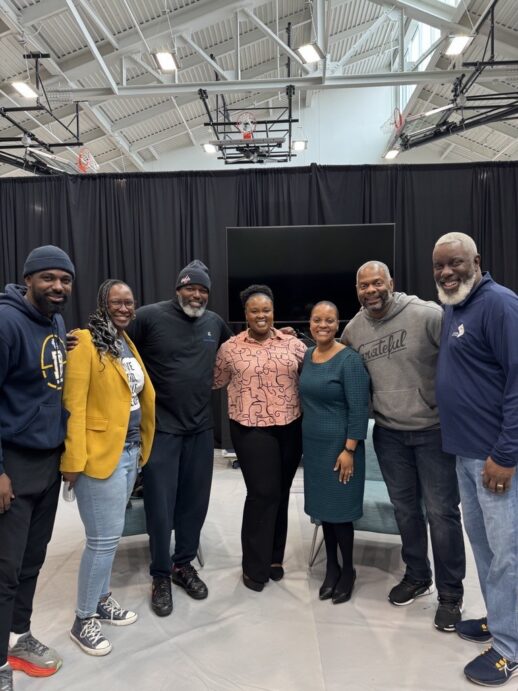
Chrishana’s session provided useful framing for the other two speakers, who discussed how attendees can offer foster care support for children and families in DC (DC 127) or become involved in afterschool theatre programming for children and youth (Children’s Legacy Theatre). Conference attendees will now spend time together digesting what they learned to inform ARC’s future strategic programming.
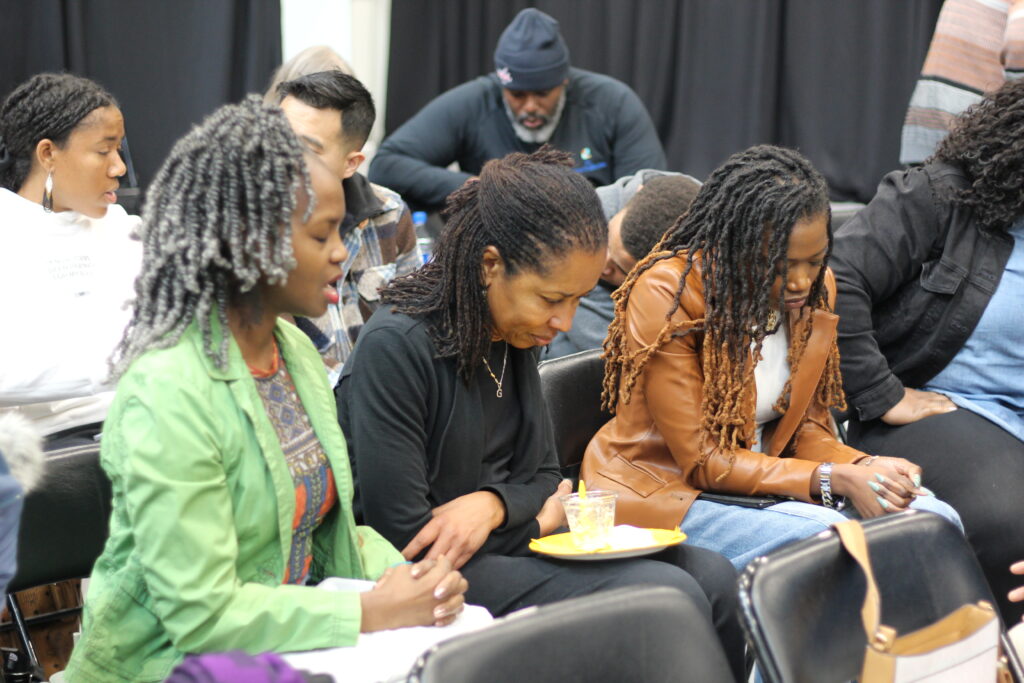
Supporting community organizations in utilizing data to ignite positive changes in their programming is one of BFF’s primary goals. We’re grateful to the ARC community for the opportunity to engage with and learn from their congregation.
*First and third photos courtesy of Moira Ballard

